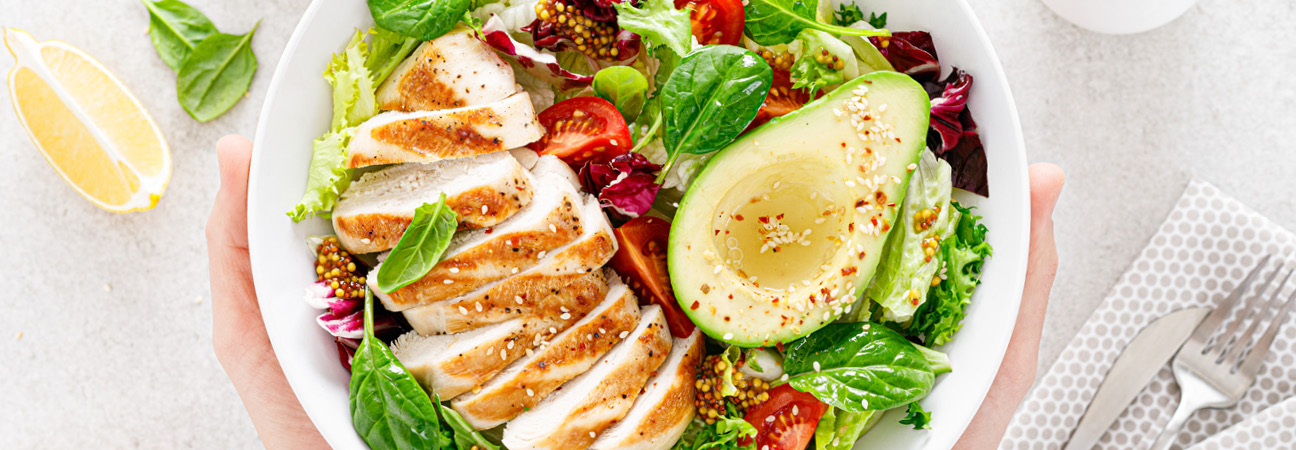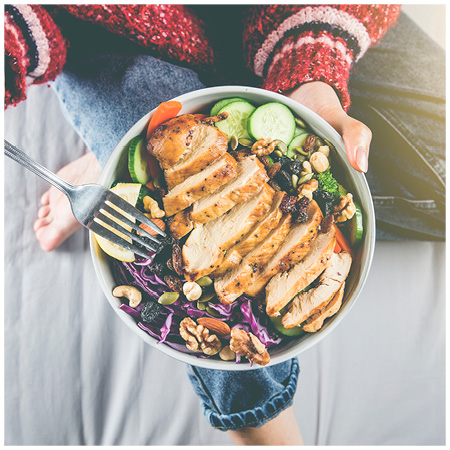Eight things to eat to increase your protein intake

Need to up your protein intake? Tuck into some of these every day and you’ll be well on your way
We hear a lot about the importance of eating enough protein.
It’s essential for the creation and maintenance of every cell and helps red blood cells carry oxygen through your body.
The daily recommended intake for men is 0.84g per kg of body weight and for women it’s 0.75g per kg of body weight. As you get older, the need for protein increases: for those over 70 years old, the recommended daily intake is 1.17g per kg body weight for men, and 0.94 g for women.
But for those on a plant-based diet, or those who only eat a little meat, reaching that 50g or 70g target per day might be challenging.
Here are our top eight sources of protein to help you reach your target protein intake. If you don’t eat meat, skip to #4.

Chicken breast is a remarkable source of lean protein, making it very popular...try it in an easy chicken salad.
1. Chicken Breast
Chicken breast is a remarkable source of lean protein, making it very popular among athletes and those looking to build muscle. Try it in an easy stir-fry or shredded in a chicken salad.
Protein content: 31g per 100g chicken (cooked)
2. Lean beef
Lean beef is a go-to for easy dishes like stir fries and Thai beef salad.
Protein content: 26g per 100g lean beef (cooked)
3. Salmon
Rich in omega-3 fatty acids, salmon is not only great for protein but also beneficial for heart health. Pan-fry or roast in the oven or poach and flake through a salad.
Protein content: 25g per 100g (cooked)
4. Lentils and Chickpeas
Staples in vegetarian diets, lentils and chickpeas are packed with protein and fibre. Add a cup of cooked lentils or chickpeas to a salad for an effortless protein boost.
Protein content: 9g per 100g (cooked)
5. Greek Yogurt
Greek yogurt is a versatile and delicious source of protein that can be enjoyed plain or with fruit, nuts and honey.
Protein content: 10g per 100g
6. Eggs
Eggs are quick and easy to prepare – boiled, scrambled, fried or in an omelette, they’re a great source of protein, folate and vitamins D and B12.
Protein content: 6.3g per boiled egg
7. Cottage Cheese
Cottage cheese is a great low-fat protein source that can be eaten sweet or savoury. Top with a drizzle of honey, some nuts and sliced fruit, spread on super seedy toast and top with fresh tomatoes, or add a scoop on top of your salad or eggs to up your protein without even trying.
Protein content: 11g per 100g
8. Beans
Beans such as cannellini, pinto, edamame, navy and black eye are rich sources of protein and fibre and are excellent flavour carriers for all sorts of dishes from soups to stews, curries and salads.
Protein content: 8-9 g per 100g (cooked)

